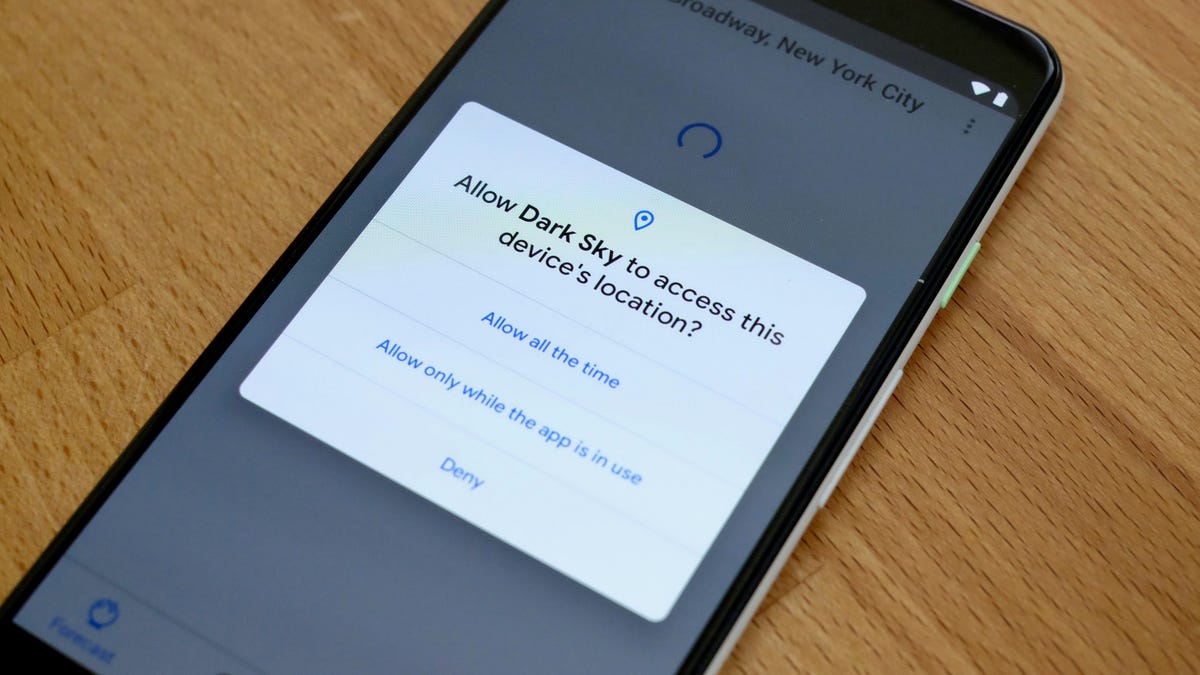Android Q rethinks how apps request and use your location
Google tells app developers to make their requests for location information understandable to users.

Sometimes it's not so obvious why an app would need your location info.
Every phone user has gone through some version of this: You see a pop-up from an app asking for your location information, but have no idea why. Perhaps you uneasily click "allow," guessing that the app has good reason. Or you click "deny" and then wonder if the app will work correctly going forward.
Now, Google is pushing app developers to ask only for location information they need, and to do it in a way that makes sense to users. The tech giant gave details about how changes to location requests will work in two different presentations Wednesday at its annual I/O developer conference.
"Users are more likely to give your app permission if they understand the purpose and see granting it as logical," said Charmaine D'Silva, a product manager at Google, in a talk addressed to app developers.
It's yet another privacy-oriented update packed into Android Q, the next version of Google's mobile operating system. It comes alongside new features like Incognito mode in Maps, which prevents searches from being saved to your Google account, and the option to automatically delete your search and location history at regular intervals. These updates come as Google and other tech titans face continued scrutiny for their broad and difficult-to-understand collection of user data. For example, Google made headlines in April when a report revealed law enforcement was making heavy use of user location information found in Google's Sensorvault database.
In Android Q, apps must now give users the option to give permission to use location information "all the time" or "only while the app is in use." This could address concerns that apps like Uber are tracking your every move even when you're not using them.
Google representatives reiterated best practices and recommendations for using location information to app developers in both presentations. They focused on using as little location information as possible and prompting users to give permission to access location information at a time that makes it clear why the information is necessary.
This will require an adjustment from developers. Users will see prompts that ask if they want to continue giving apps location information in the background, so app makers must prepare for what will happen when some users deny that access going forward.
Or, as Google senior product management lead Jen Chai put it, developers should aim to "gracefully handle when your app doesn't have background location, or any location."

